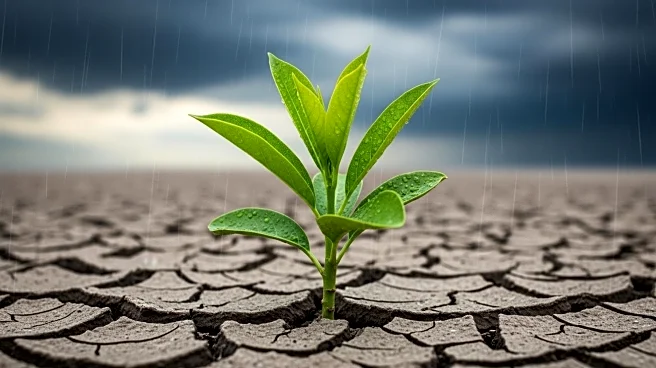What's Happening?
The Food and Agriculture Organization (FAO) and the United Nations Central Emergency Response Fund (CERF) have initiated an emergency program in Haiti's North and Centre departments. This initiative aims to support vulnerable households affected by displacement, deportations, and climatic shocks. The program targets displaced individuals, deportees from the Dominican Republic, and their host communities, focusing on enhancing food production and resilience against natural hazards. The initiative includes distributing seeds and grass cuttings to 1,200 rural households, expected to produce over 250 tonnes of food within 90 days. Additionally, families receive cash transfers to meet immediate food needs. The program also involves rehabilitating irrigation canals and constructing shelters for livestock, benefiting approximately 1,500 people. Training in climate-smart agriculture is provided to 400 farmers to boost productivity and adapt to climate challenges.
Why It's Important?
This initiative is crucial as nearly half of Haitians are classified in IPC Phase 3 or above, indicating severe food insecurity. The majority of these individuals reside in rural areas dependent on agriculture, facing malnutrition risks and extreme food shortages. By addressing immediate food needs and enhancing agricultural resilience, the program aims to stabilize livelihoods and improve food security. The initiative also provides income opportunities through infrastructure rehabilitation, which is vital for economic recovery. The focus on climate-smart agriculture is significant in preparing communities for future climatic challenges, ensuring sustainable food production and long-term resilience.
What's Next?
The program is expected to generate substantial food production within 90 days, providing sustenance for thousands of households. As the initiative progresses, monitoring its impact on food security and community resilience will be essential. The success of this program could lead to expanded efforts in other regions facing similar challenges. Stakeholders, including local governments and international organizations, may consider replicating this model to address food insecurity in other vulnerable areas. Continued support and funding will be necessary to sustain these efforts and ensure long-term stability.
Beyond the Headlines
The initiative highlights the intersection of humanitarian aid and climate adaptation, emphasizing the need for integrated approaches to tackle complex crises. It underscores the importance of empowering local communities to build resilience against environmental and social stressors. The program's focus on climate-smart agriculture reflects a growing recognition of the need to adapt farming practices to changing climatic conditions, which is crucial for global food security. This approach may serve as a model for other regions facing similar challenges, promoting sustainable development and resilience.











